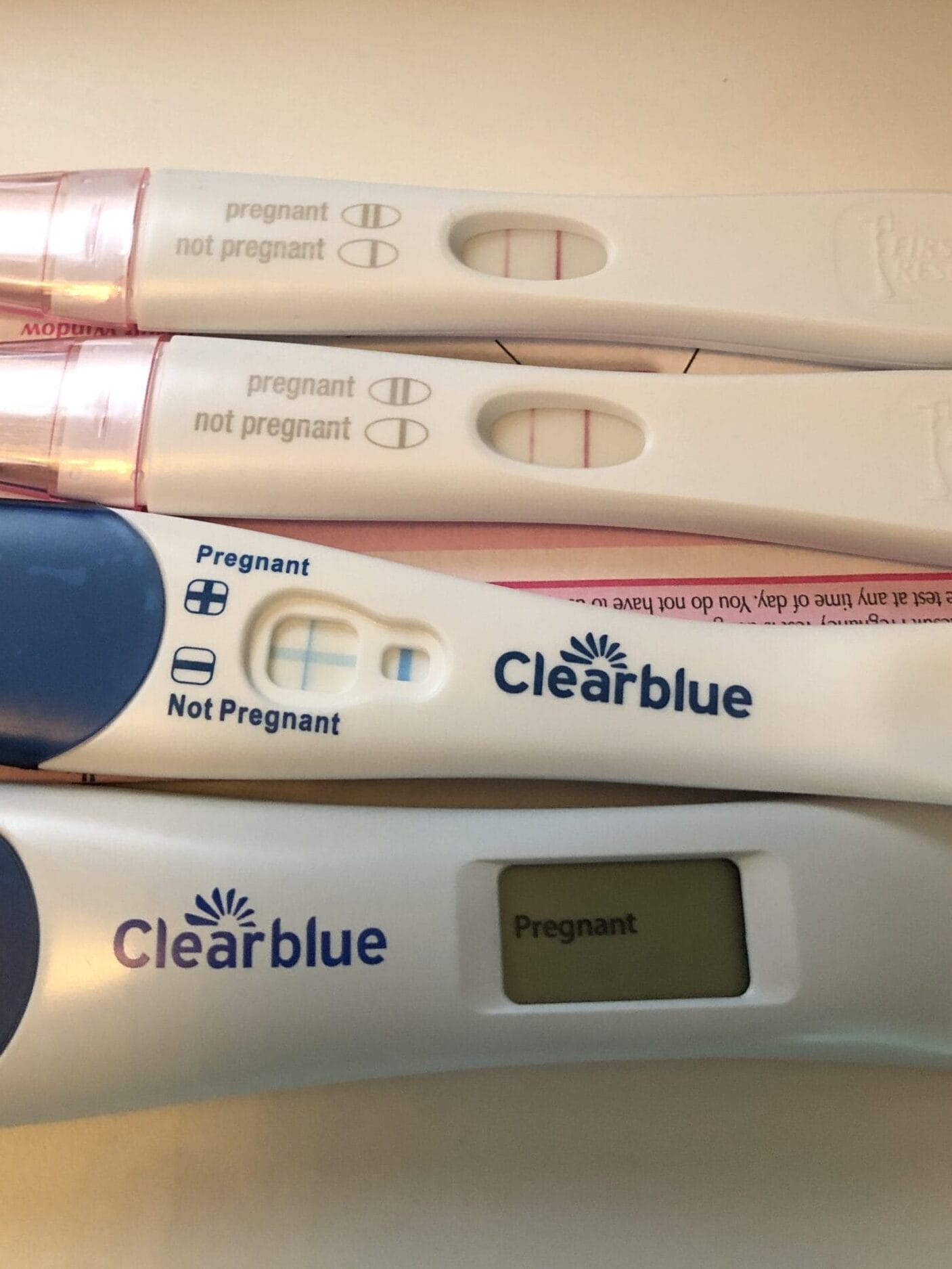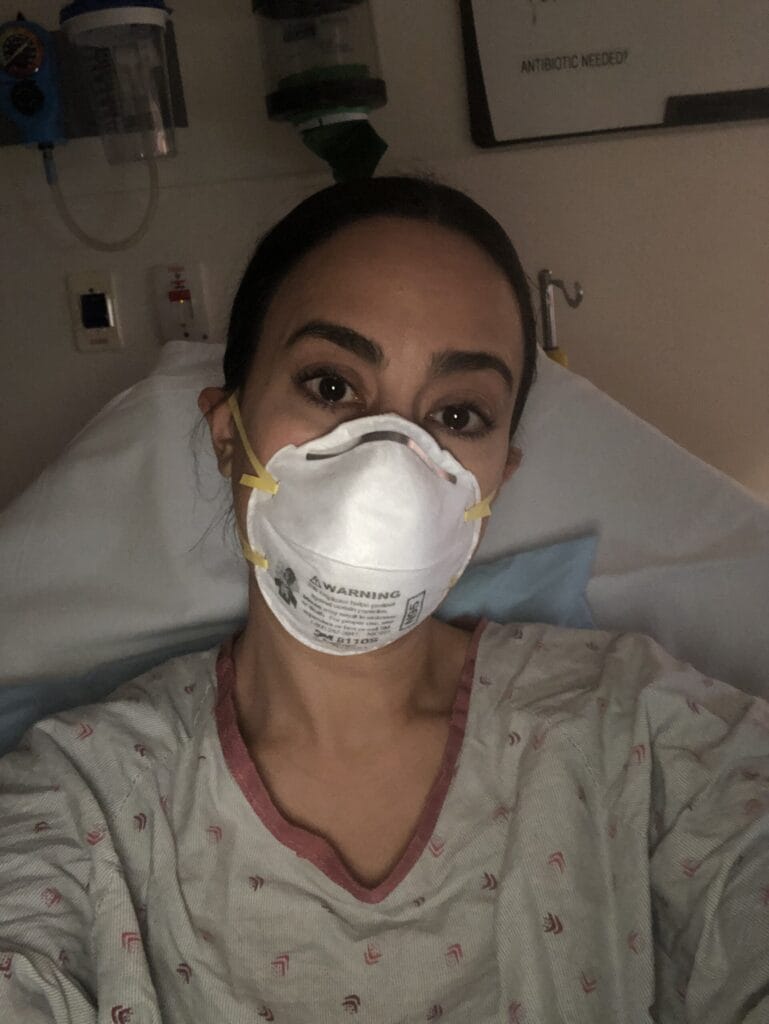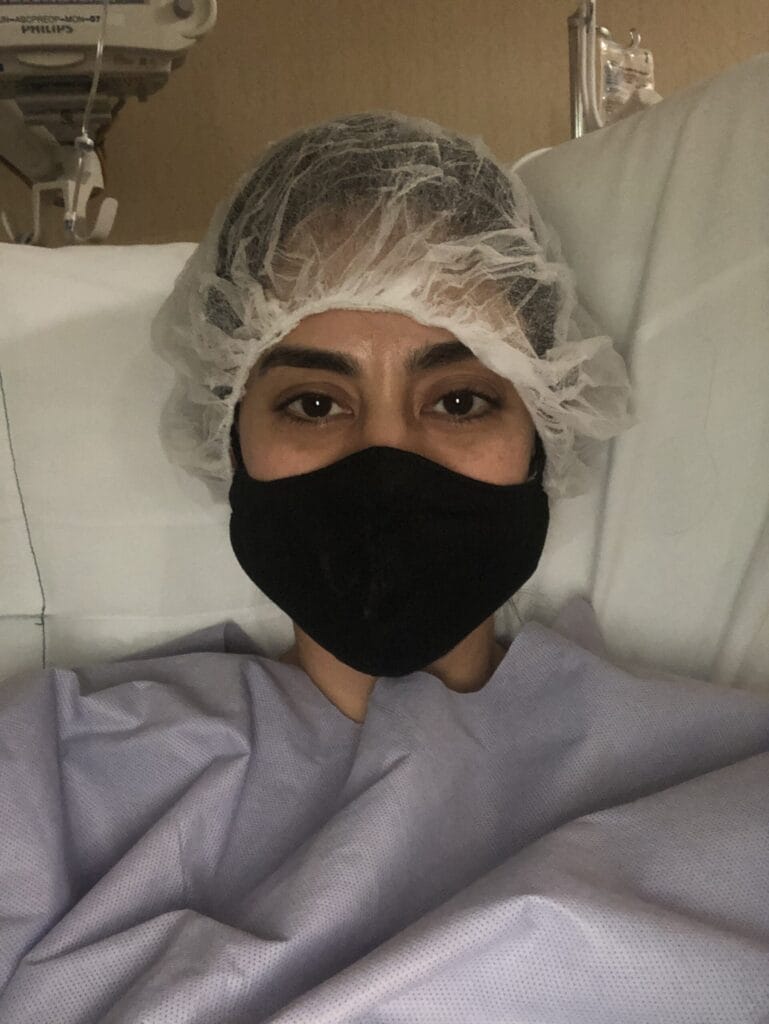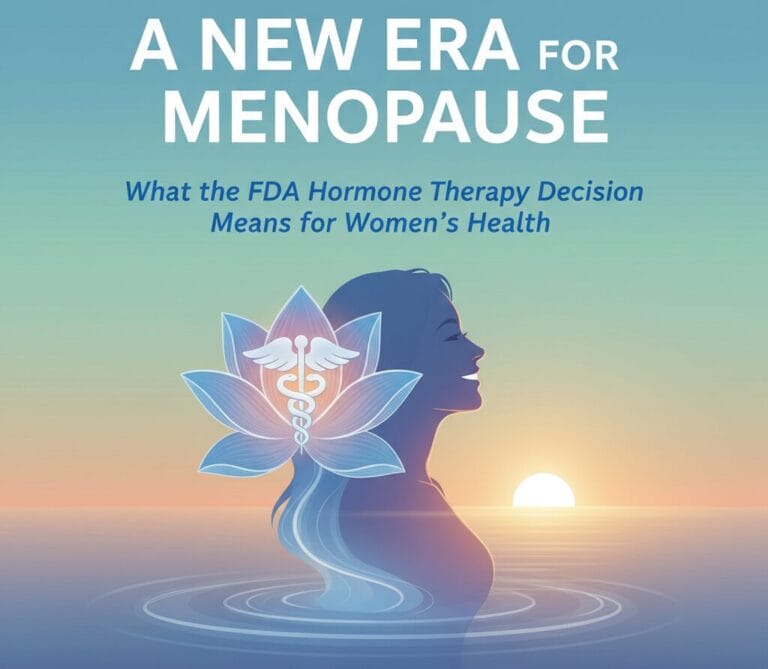
What No One Prepares You For: Ectopic Pregnancy, Endo, and Early Menopause
It takes most women nine months to go through a full-term pregnancy. For me, my entire reproductive life flashed before my eyes in the same amount of time. And it all began during a time when the whole world felt like it was unraveling.
It was April 1, 2020, the early days of the COVID-19 pandemic. I realized my period was over a month late. That wasn’t unusual for me. I had stage 4 endometriosis, thyroid dysfunction, and other autoimmune issues that made my cycle irregular. Still, something told me to take a pregnancy test.
I ordered multiple pregnancy tests on DoorDash. It was early in the morning, and I had a full day of therapy clients ahead. I took the first test, then waited in silence. I was anxious and afraid. When I finally looked, the test was positive.

My heart dropped. I couldn’t breathe. I panicked.
This couldn’t be real. I took another test. Then another. All positive. I screamed for my husband and burst into tears. I remember saying, “My life is over. What do we do?”
I was in complete shock. For over 15 years, I’d been told I might not be able to conceive naturally. I wasn’t trying to get pregnant. I had been on a holistic healing journey, trying to balance my hormones, get my energy back, and feel like myself again. I had no idea that improving my health might also improve my fertility.
And I was just months away from my 40th birthday. That milestone had already brought up emotions about my body, my health, and my future. This unexpected pregnancy brought it all to the surface.
Part of my panic came from the trauma of my previous endometriosis surgery. Less than two years earlier, I had undergone a laparoscopic procedure that left me with scar tissue, pain, and no real answers. I was still healing.
At seven weeks, everything changed again.
I started bleeding and felt sharp, unbearable pain. I knew something was wrong. I called my doctor right away. Because of pandemic protocols, I had to go in alone, masked, and terrified. My husband couldn’t come in with me. I sat in that waiting room, overwhelmed with fear, shame, and helplessness.
My OB-GYN, who had cared for me for years, did an ultrasound. I saw his face change before he said anything. He told me it looked like a “pregnancy of unknown location”. He suspected it was ectopic and urged me to go to the emergency room immediately.
That was the first time I truly heard the words “ectopic pregnancy.” I didn’t fully understand what it meant, even as a psychologist and sex therapist. I didn’t know anyone personally who had gone through it. I felt completely alone.
I remembered a woman I had met a few times who once shared her story. I reached out, and she generously walked me through what she had experienced. Her support helped me get through the hardest moments that followed.

The next day, I was in the emergency room. Again, I was alone. My husband was not allowed to come with me. After more ultrasounds, they confirmed that it was an ectopic pregnancy. The embryo had implanted outside of the uterus, likely in a fallopian tube. It could not survive, and it could rupture and kill me if not treated immediately.
I was told I needed a medical abortion. They would use methotrexate, a form of chemotherapy, to stop the pregnancy from growing.
When the nurses came in to administer the injection, they were wearing full hazmat suits. I remember thinking, If this is what they have to wear, what is this going to do to my body?
I lay there in shock, barely able to cry. When I asked if my husband could be with me, they allowed him in just before the injection. I needed him there. I didn’t want to face this alone.
The following 48 hours were some of the most painful of my life. The physical process of passing the pregnancy is something I don’t talk about often. It was traumatic and overwhelming. I felt grief, confusion, and a deep sense of loss, even though I hadn’t planned for this pregnancy.
I needed answers. I needed to understand why this had happened.
After weeks of recovery, I began searching for a specialist. I learned that my first surgery had left behind so much scar tissue that my fallopian tubes were severely damaged. The pregnancy never had a chance. My body, after all it had been through, couldn’t protect itself.
In September 2020, I underwent a second surgery with one of the top endometriosis specialists in the country. I went in alone again. My husband had to drop me off at the front door of the surgical center. I sat in the waiting area feeling empty, scared, and broken.

The surgery was successful. My doctor told me it was one of the most severe cases he had ever seen. That validation was bittersweet.
Months later, I started to notice changes in my body. Hot flashes. Sleep disturbances. Mood shifts. My periods became even more painful. I had entered surgically accelerated menopause. The removal of an ovary and a fallopian tube had pushed me into perimenopause before I ever expected it.
In nine months, I had lived through a natural conception, a life-threatening pregnancy, a traumatic medical abortion, a second surgery, and the onset of menopause.
This is why I say my entire reproductive life happened in one flash.
Why I’m Sharing This Now
I’ve never shared this story publicly before. But today, on Ectopic Pregnancy Awareness Day, I want to speak up.
Ectopic pregnancy is one of the most frightening and overwhelming experiences someone can go through. It is a medical emergency that can quickly become life-threatening. But even more than that, it can leave you feeling isolated, ashamed, and deeply confused.
If you’ve had one, I want you to know that you are not alone.
If you know someone who’s been through it, please offer them compassion, not silence.
If you’re a provider, I hope you remember how much care and sensitivity your patients need in those moments.

I hope that by telling this story, someone else feels a little less alone. That someone knows they are strong enough to get through it. That healing is possible, even after the most unexpected loss.
And that our stories matter.






